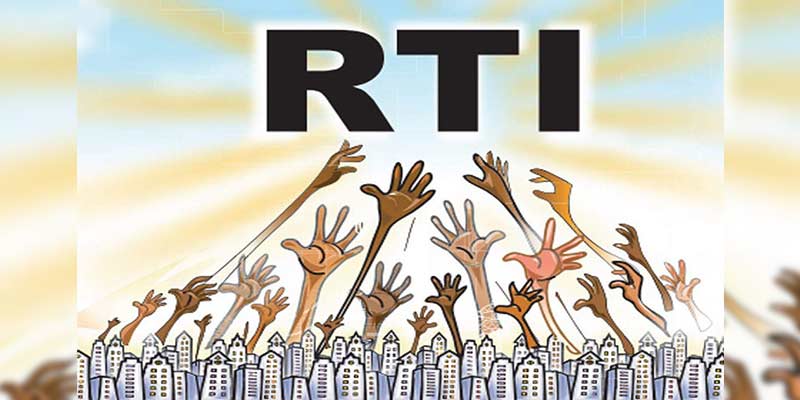- India
- Jul 25
Explainer / RTI Amendment Bill
The Lok Sabha passed a Bill on July 22 to amend the Right to Information Act amid objections by the Opposition, which alleged that it was an attempt to undermine the law and turn the panel into a “toothless tiger”.
The RTI (Amendment) Bill, 2019, seeks to give the government powers to fix salaries, tenures and other terms and conditions of employment of information commissioners.
Rejecting the Opposition’s charge that the Bill will weaken the RTI Act, the government said it was fully committed to transparency and autonomy of the institution.
What is the purpose of the RTI Act?
Under the RTI Act, 2005, public authorities are required to make disclosures on various aspects of their structure and functioning. This includes…
* Disclosure on their organisation, functions, and structure.
* Powers and duties of its officers and employees.
* Financial information.
The basic objective of the RTI Act is to empower citizens, promote transparency and accountability in the working of the government, contain corruption and make our democracy work for the people in a real sense.
The Central Information Commission (CIC) had been constituted under the RTI Act, 2005. The jurisdiction of the commission extends over all central public authorities.
People can exercise their right to seek information from the government on a payment of Rs 10. They can also approach the commissions if information is not provided within the mandatory 30 days or they are provided with incomplete or incorrect information.
The CIC is headed by the chief information commissioner with 10 more members called information commissioners. They are chosen by a panel comprising the prime minister, the leader of the largest Opposition party in the Lok Sabha and a member of the Union Cabinet.
What are the key changes in the new Bill?
Section 13 of the RTI Act provides that the chief information commissioner shall hold the office for a term of five years.
Section 13(5)(a) of the RTI Act provides that the salaries and allowances payable to and other terms and conditions of service of the chief information commissioner shall be the same as that of the chief election commissioner.
Section 13(5)(b) of the RTI Act provides that the salaries and allowances payable to and other terms and conditions of service of an information commissioner shall be the same as that of an election commissioner.
In the amended Bill, the term of office, salaries, allowances and other terms and conditions of service of the chief information commissioner and information commissioners and the state chief information commissioner and state information commissioners shall be such as may be prescribed by the central government.
Who are opposing the move?
Lawmakers, former information commissioners and activists condemned the amendment to the RTI Act, saying it would “undermine the independence of the Information Commissions”.
Social activist Aruna Roy, who fought a long battle to bring in the transparency law in 2005, said it was a regressive move aimed at undermining the independence of Information Commissions.
Former information commissioner Sridhar Acharyulu said it would be a “stab in the back” for the CIC and a “death blow” to the Act.
Leading the Opposition charge during the debate on the Bill, Congress MP Shashi Tharoor said that under the proposed changes the government can hire and fire independent information commissioners. “It is not RTI amendment Bill but RTI elimination Bill,” he said.
First chief information commissioner Wajahat Habibullah said that statutorily protected tenure and terms of service of information commissioners were crucial to allow them to work without fear or favour.
He said it was not a question of whether the CIC or the SIC are constitutional bodies or not, but they were supposed to give “neutral and unbiased” reports on the functioning of the government and its constituents which was not possible without these powers.
What is the govt’s argument?
Assuring the MPs that the government is not misusing its powers to frame rules regarding SICs, Minister of State Jitendra Singh said that according to the RTI Act, the power of framing rules with respect to information commissions does not fall under the purview of either the Union, state or concurrent lists. Hence, framing rules, even for state information commissions falls under the residuary powers of the Union government.
Replying on the issue of comparison of service conditions of Information Commissions and Election Commission, Singh said that the CIC and SICs are statutory bodies established under the provisions of the RTI Act. Therefore, the mandate of the Election Commission and CIC and SICs are different. Hence, their status and service conditions need to be rationalised accordingly.
He said that there has been no change in the section of the original Act dealing with the appointment of information commissioners. Thus, the question of reducing the autonomy of information commissions does not arise.

